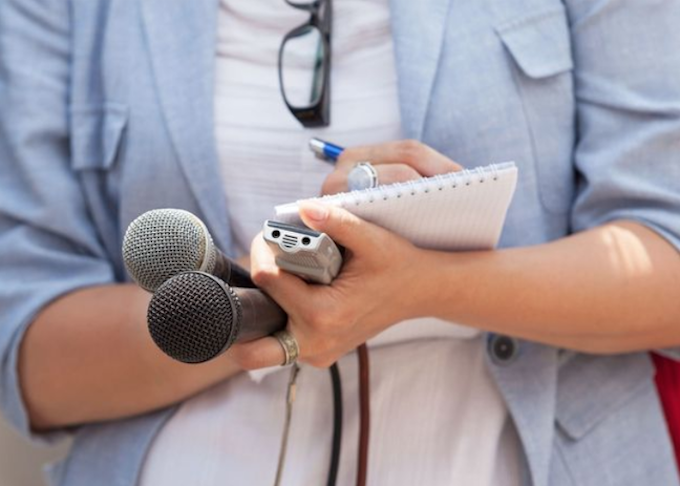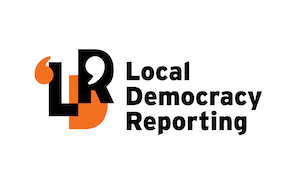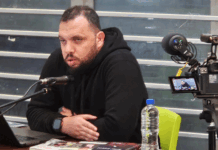
COMMENTARY: By David Reid of Local Democracy Reporting
A media bribe? More like the deal of the century.
Fifty-five million dollars does sound like a lot of money. It could buy you a fantastic jet-setting lifestyle, homes around the world and certainly the freedom to never work again.
But what it won’t buy you is influence over a near 200-year-old industry that costs billions to run every year.

Yet, as the government’s Public Interest Journalism Fund turns towards its home straight, there is the baffling suggestion that somehow editors around New Zealand have all been “bought” by the Labour government.
It is a false, dangerous and frankly lazy assumption.
One of the bigger recipients of the fund is the Local Democracy Reporting scheme. It takes about $1.5 million a year. It will likely always need public money because it was set up to fix a problem.
Regional news is struggling. Advertising revenue has been hoovered by tech giants.
Facebook versus the Akaroa Mail… who would you bet on?
Slashed to survive
So, local radio stations, community papers and even regional titles in place for more than a century have had to slash to survive.
Reporters could no more sit in council meetings, chase up the activities of ports or dig into what district health boards are up to. There wasn’t the time. There wasn’t the money.
Journalists, already earning scandalously small wages, got sacked and local news got smaller.
Private media did not step in to fill the gap as there was no profit to be had.
So local lawmakers were quietly left alone to manage ratepayer money. Some did better than others.
Addressing this information vacuum, RNZ and the News Publishers’ Association got creative.
In 2019, they set up a project known as Local Democracy Reporting. Based on similar schemes in Canada and the UK, it now manages 15 reporters around the country.
Seeking the truth
The journalists, funded by taxpayer money, are employed to go and seek truth from publicly elected people and organisations.
Stories they write can be accessed by rival media outlets at the same time as they go to print by the host newsroom. It is, at its core, a domestic wire service.
Last year, LDR reporters wrote more than 3000 local stories from around the country generating more than 9 million page views.
Stories from the top to bottom of New Zealand were shared for free to the 30 media partners who sign up to the scheme.
And since the project’s inception in 2019, how many stories have been questioned by the purse holders at NZ On Air? Not one. Not a single email, telephone call or meeting has questioned the editorial output of any one of the reporters.
Neither has there been a single suggestion of a news line that reporters might consider. And if there had been, you can take it as gospel that these reporters would chuck the suggestions straight in the bin.
Journalists value their independence.
LDR reporters not ‘newbies’
LDR reporters are not “newbies” to the game either. They are at least mid-career and know their patches well. Most are part of a newsroom they worked in before LDR existed and are well in tune with their audience.
They are Māori, Pākehā, female, male, old and young. But most importantly they are skilled reporters who spend their time searching for fact, inconsistency, lies and truth.
The idea that they and their editors are now craven to government paymasters that they have never met is both preposterous and insulting.
And the best way to see this is to look at the stories. They hardly paint the government of the day in a flattering light.
Covid-19 rules, new laws for farmers, racial inequity and management of water are just some of the topics given regional voice. In these stories, government ministers don’t get a look in.
Some who decry public funding of news are also quick to complain that the ‘metropolitan elite’ don’t pay enough attention to the smaller towns and communities.
They say the mainstream media has no clue about ‘real New Zealand, doing it tough’.
Stitching it all together
LDR is in place to address that very concern.
Up and down the country, the reporters go out and talk to iwi, business owners, parents, councillors and mayors. They stitch it all together and get it in the news.
If you want to judge the success and worth of a local democracy reporter, go talk to your local councillors. Ask if they enjoy having reporters present at meetings. If they are honest, they will tell you that they don’t.
They know public discussion of any rate increase, speed limit change or building project could be online to a big audience within minutes.
The LDR project constantly keeps its eye on the use of public cash all around the country. It costs every New Zealander about 30 cents a year. What a bargain.
David Reid is the Local Democracy Reporting manager. LD Reporting is funded by NZ On Air; Asia Pacific Report is an LDR partner.











































